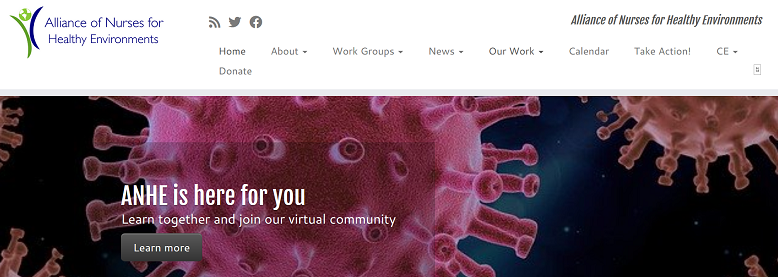Online Course
NRSG 780 - Health Promotion and Population Health
Module 12: Environmental Health, Occupational Health, Unintended Injuries and Violence
Population-based Initiatives to Reduce the Burden of Environmental Health Issues
National
The CDC National Center for Environmental Health (NCEH) plans, directs, and coordinates a program to protect the population from environmental hazards. It emphasizes promoting a healthy environment and preventing premature death, avoiding illness and disability causes by non-infectious, non-occupational environmental and related factors. It is particularly committed to protecting the health of vulnerable populations—children, older adults, and people with disabilities from certain environmental health hazards. NCHE’s goals include the following:
- Conduct research in the laboratory and field
- Investigate the effects of the environment on health
- Trach and evaluate environmental-related health problems through surveillance systems
- Help US and international agencies and organizations prepare for and respond to natural, technologic, humanitarian, and terrorism-related environmental emergencies
For more information of the NCHE please review the website at: https://www.cdc.gov/nceh/about/index.html
Statewide
The Maryland Department of Health’s Environmental Health Bureau focuses on:
- Surveillance of environmental, occupational and injury conditions and exposures
- Regulation and control of hazards in food, home environments and the community
- Response to new and emerging hazards and environmental threats such as global climate change
Click here for more information on environmental health in Maryland.
Alliance of Nurses for Healthy Environments: An international effort started by the University of Maryland School of Nursing

The Alliance of Nurses for Healthy Environments (ANHE) is an international network of nurses who are acting on the premise that the environment and health are inextricably connected. ANHE is working to integrate environmental health intro nursing education, green health care workplaces, incorporate environmental exposure questions into patient histories, provide anticipatory guidance to pregnant women and parents about environmental risks to children, implement research that addresses environmental health questions and advocate for environmental health in the workplace and governmental institutions.
Watch this video to get a sense of the work of ANHE.
The University of Maryland School of Nursing offers an on-line certificate in Environmental Health. For more information click here.
This website is maintained by the University of Maryland School of Nursing (UMSON) Office of Learning Technologies. The UMSON logo and all other contents of this website are the sole property of UMSON and may not be used for any purpose without prior written consent. Links to other websites do not constitute or imply an endorsement of those sites, their content, or their products and services. Please send comments, corrections, and link improvements to nrsonline@umaryland.edu.